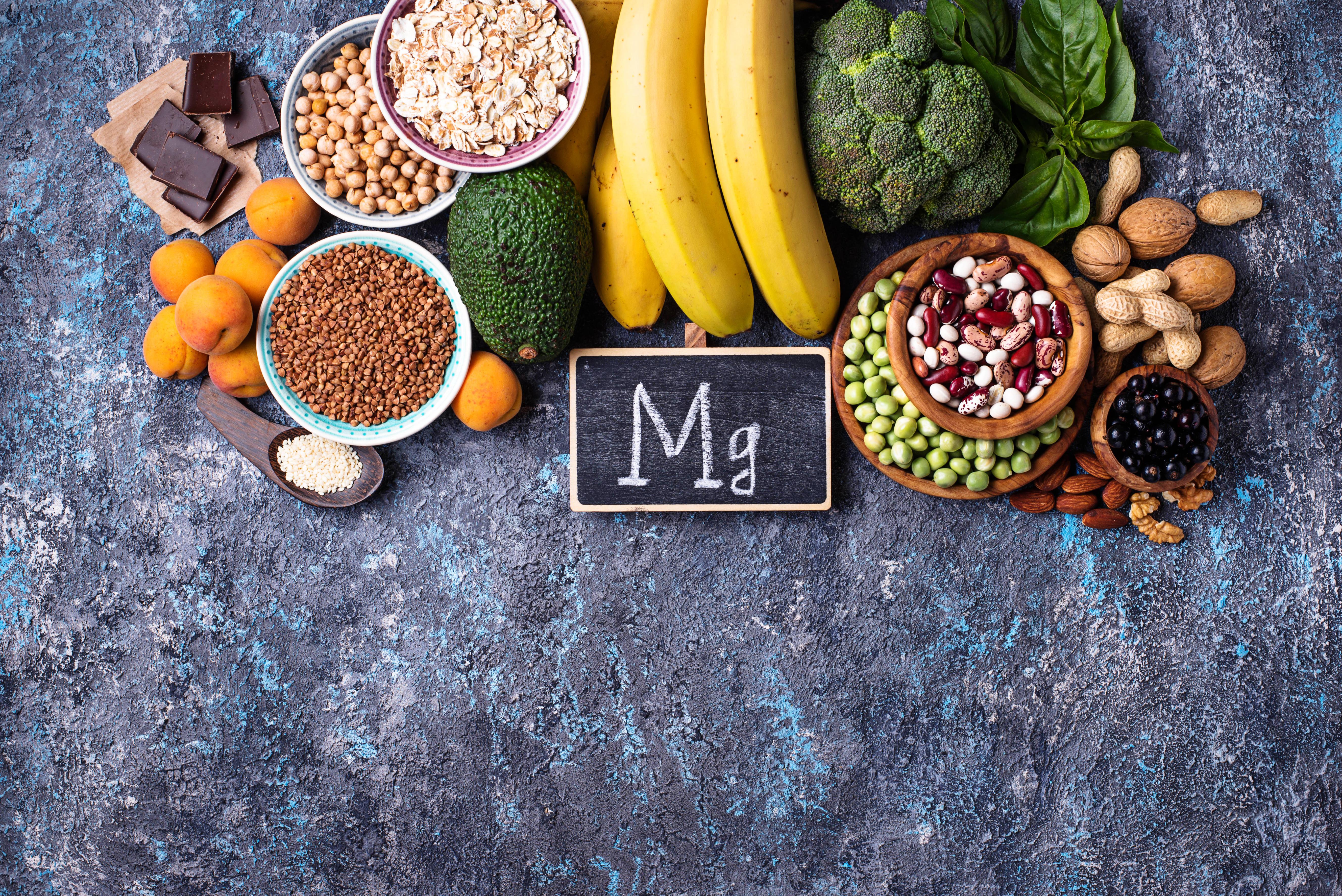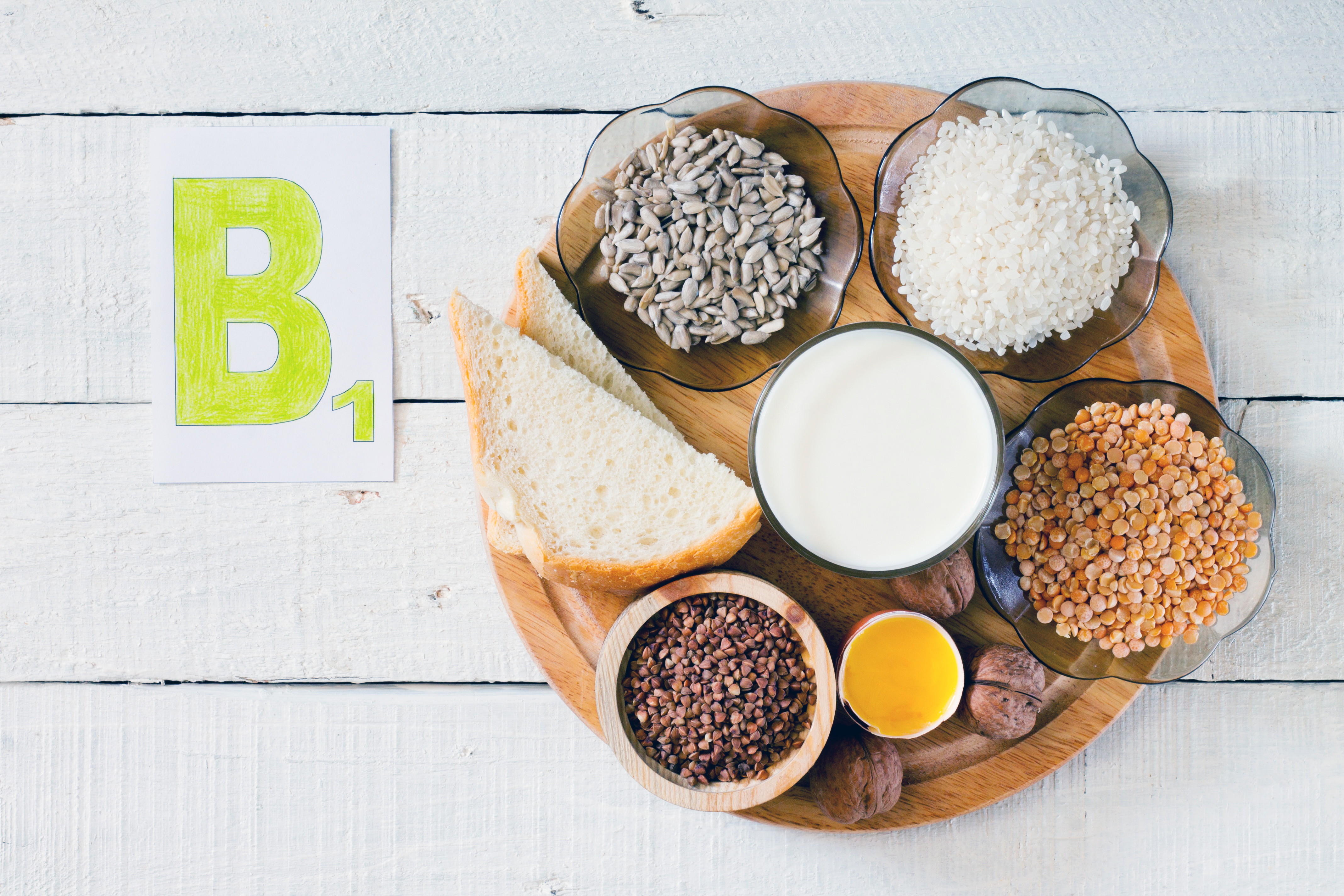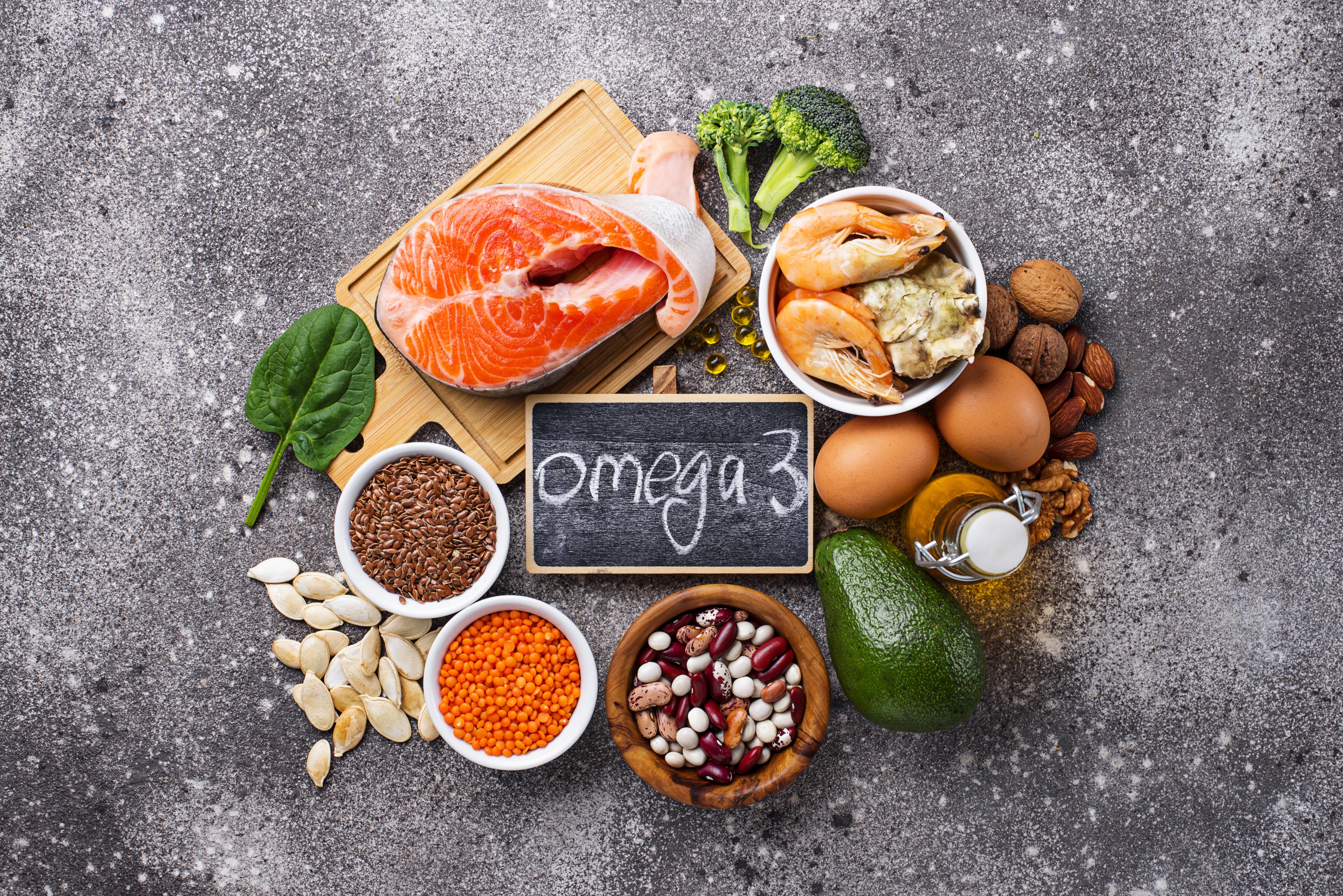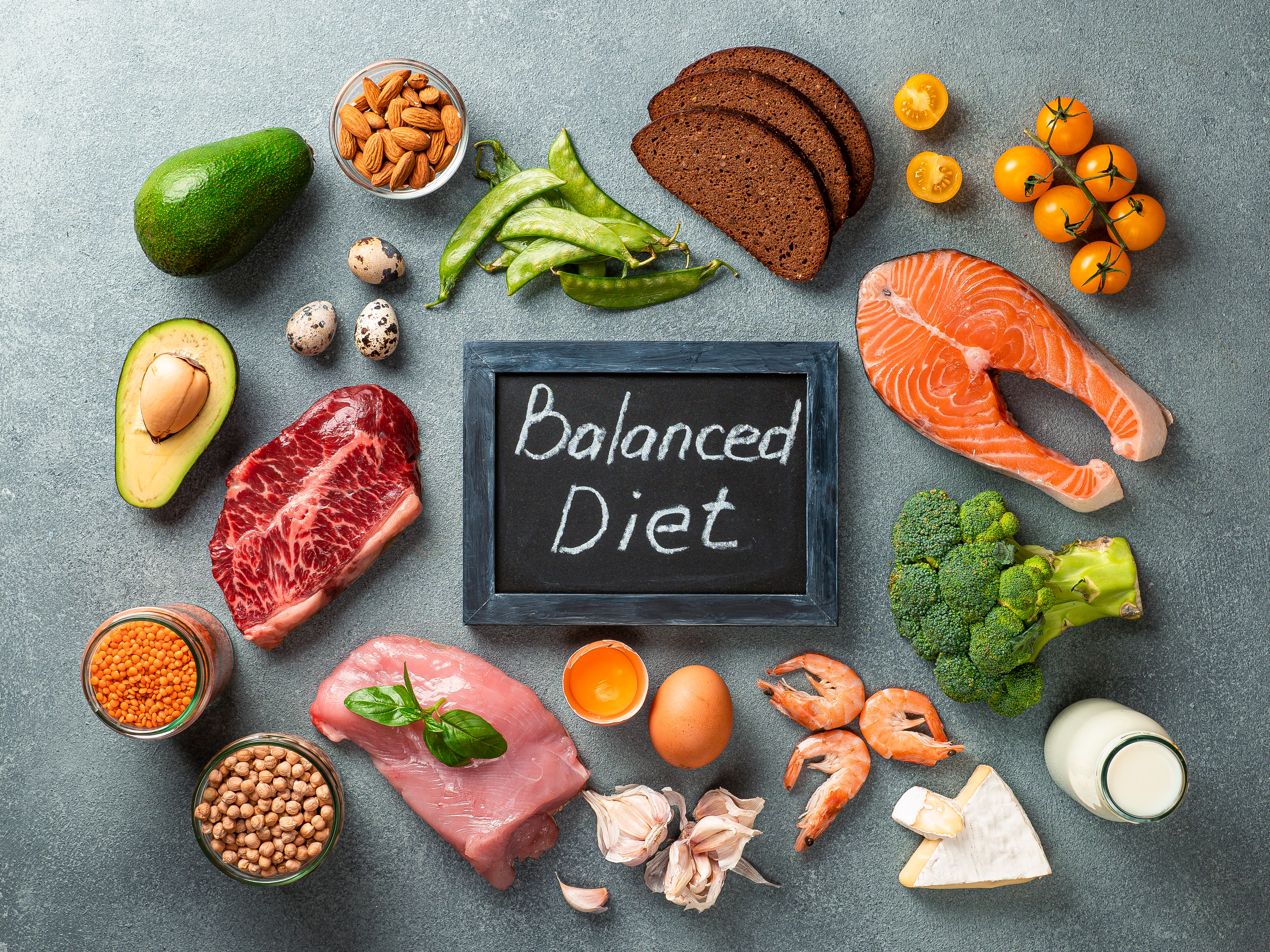12 Little-Known Signs of Nutrient Deficiencies Affecting Your Energy & Mood
In a world where energy drinks and quick fixes are often the go-to solutions for fatigue and mood swings, the profound impact of nutrients on our energy levels and emotional well-being is frequently overlooked. Nutrients are the building blocks of life, playing a crucial role in maintaining the body's equilibrium. This article aims to unveil 12 hidden clues—often buried under the noise of modern dietary trends—that can significantly boost energy and enhance mood through the power of nutrients. Each section will delve into specific nutrients and their roles, offering a comprehensive guide to harnessing these natural secrets for a more vibrant and balanced life.
1. The Role of Magnesium in Energy Production

Magnesium is vital for converting food into usable energy, earning it the nickname “miracle mineral.” It acts as a cofactor in hundreds of enzymatic reactions, including the synthesis of ATP—the molecule that powers virtually every cellular function. When magnesium levels are low, your body struggles to complete these processes efficiently, leading to chronic fatigue, muscle weakness, and even anxiety. It also supports muscle function, nerve signaling, and heart rhythm regulation. Foods rich in magnesium—like leafy greens, nuts, seeds, and whole grains—are essential for sustaining energy throughout the day and supporting overall metabolic resilience.
2. Vitamin B Complex: The Energy Catalysts

The B vitamin family—B1 through B12—functions like a metabolic orchestra, each vitamin playing a distinct but complementary role in converting carbohydrates, fats, and proteins into energy. B1 (thiamine) is essential for glucose metabolism, B2 (riboflavin) helps activate other vitamins, and B3 (niacin) supports cellular respiration. B6 is crucial for neurotransmitter synthesis, influencing mood and reducing fatigue, while B12 maintains nerve health and helps form red blood cells. A deficiency in even one B vitamin can disrupt energy flow and emotional balance. Found in whole grains, meats, dairy, and legumes, B vitamins are foundational to daily energy and mental clarity.
3. Omega-3 Fatty Acids: The Mood Enhancers

Omega-3s—particularly EPA and DHA—are polyunsaturated fats essential for brain function and emotional stability. These fats help form the structural integrity of brain cell membranes and support the transmission of serotonin and dopamine, neurotransmitters that regulate mood and motivation. They also reduce inflammation, which has been linked to depression and fatigue. Studies suggest omega-3s can help manage anxiety, ADHD, and depressive symptoms. Found in fatty fish like salmon, flaxseeds, and walnuts, omega-3s are especially important for those under chronic stress. Their impact on mental clarity and emotional resilience makes them a vital component of any mood-supportive diet.
4. Iron: The Oxygen Carrier

Iron’s role in energy production is inseparable from its job in oxygen transport. As a key component of hemoglobin, iron enables red blood cells to carry oxygen to tissues and organs. Without sufficient oxygen delivery, cells cannot perform efficiently, resulting in fatigue, brain fog, and physical weakness. Iron deficiency, especially common in menstruating women and vegetarians, is one of the most prevalent nutrient deficiencies worldwide. Signs include pale skin, dizziness, irritability, and restless legs. Iron-rich foods include red meat, lentils, spinach, and fortified cereals. Pairing them with vitamin C sources improves absorption and supports sustained energy and mental alertness.
5. The Importance of Vitamin D in Mood Regulation

Vitamin D is unique—it functions like both a vitamin and a hormone. It influences serotonin production, immune response, and inflammation regulation, all of which affect mood. Low vitamin D levels have been linked to seasonal affective disorder (SAD), depression, and fatigue. With modern lifestyles limiting sun exposure, deficiency is widespread—even in sunny regions. While your body can synthesize it through sunlight, dietary sources like fortified dairy, eggs, and fatty fish also help. Supplementation may be necessary for some. By supporting brain health and reducing systemic inflammation, vitamin D is a quiet but powerful player in emotional balance and vitality.
6. Coenzyme Q10: The Energy Spark

Coenzyme Q10 (CoQ10) is an antioxidant naturally present in every cell, where it plays a central role in ATP production within the mitochondria—your cellular power plants. As we age, CoQ10 levels naturally decline, potentially contributing to low energy, muscle fatigue, and sluggish metabolism. This compound also helps neutralize free radicals, protecting cells from oxidative stress that can impair energy flow. People on statins or with chronic conditions often have lower levels of CoQ10. Supplementation or consuming foods like organ meats, spinach, and broccoli can help replenish it. For those seeking an energy reboot, CoQ10 is a critical yet often overlooked ally.
7. The Balancing Act of Chromium

Chromium is a trace mineral that enhances insulin’s efficiency, helping glucose—the body’s primary fuel—enter cells. This regulation prevents spikes and crashes in blood sugar, a key factor in sustaining steady energy levels and emotional stability. When blood sugar fluctuates wildly, it can lead to irritability, cravings, mental fog, and mood swings. Chromium supports appetite control, reduces sugar cravings, and improves insulin sensitivity. Found in broccoli, whole grains, and lean meats, it is especially beneficial for those with insulin resistance or high stress, which can deplete chromium reserves. Maintaining stable energy often starts with stabilizing blood sugar—and chromium helps you do just that.
8. Probiotics: The Gut-Brain Connection

Your gut is often called your “second brain” for good reason. The gut microbiome influences the production of neurotransmitters like serotonin and GABA, which directly affect mood, sleep, and cognition. When your gut bacteria are imbalanced—due to stress, antibiotics, or poor diet—it can lead to inflammation, brain fog, anxiety, and even depression. Probiotics help restore microbial balance and strengthen the gut lining, reducing systemic inflammation and supporting emotional regulation. Fermented foods like yogurt, kefir, kimchi, and kombucha provide natural probiotic support. A healthy gut not only improves digestion but fosters the biochemical environment needed for calm energy and emotional clarity.
9. The Calming Effects of L-Theanine

L-theanine is an amino acid primarily found in green and black tea, known for promoting relaxation without sedation. It increases alpha brain waves—associated with a calm yet alert mental state—and modulates neurotransmitters like GABA, dopamine, and serotonin. This makes it particularly effective at reducing anxiety, enhancing focus, and improving sleep quality without drowsiness. L-theanine also works synergistically with caffeine to smooth its stimulating effects, offering mental clarity without the jittery edge. Used as a natural stress reliever, it’s ideal for high-pressure days or evening wind-down routines. Whether in supplement form or a warm cup of tea, its benefits are subtle yet profound.
10. The Energizing Potential of Rhodiola Rosea

Rhodiola rosea is an adaptogenic herb used for centuries in traditional medicine to enhance stamina, resilience, and mental performance. It helps the body adapt to stress by balancing cortisol levels and improving cellular energy production. Rhodiola has been shown to reduce symptoms of fatigue, burnout, and brain fog, especially in those under chronic stress or performing mentally demanding tasks. Unlike stimulants, it offers energy without a crash. It also supports mood regulation and has been studied for its potential antidepressant properties. Incorporating Rhodiola can provide a gentle yet sustained boost in physical endurance and mental clarity—perfect for those running on empty.
11. Hydration: The Unsung Hero of Energy and Mood

Water is essential for nearly every biological function, yet its impact on mood and energy is often underestimated. Even mild dehydration can impair cognitive function, reduce alertness, and increase irritability. Water supports nutrient transport, toxin elimination, temperature regulation, and cellular energy production. When you’re dehydrated, your body works harder to function, leading to fatigue and sluggishness. Hydration also supports digestion and circulation, both of which contribute to sustained vitality. Drinking enough water, along with hydrating foods like fruits and vegetables, is one of the simplest and most immediate ways to support energy levels, mental clarity, and emotional balance.
12. The Synergistic Effects of a Balanced Diet

No single nutrient can unlock sustained energy and emotional well-being on its own—it’s the synergy that matters. A balanced diet weaves together vitamins, minerals, healthy fats, protein, fiber, and complex carbohydrates to support every bodily system. Nutrients interact: vitamin C boosts iron absorption, B vitamins work best in tandem, and fat-soluble vitamins require dietary fat for activation. A whole-food-based diet ensures that your body receives what it needs for consistent energy, emotional regulation, and resilience. When meals are nutrient-dense and diverse, the body functions optimally—not just surviving but thriving. Food becomes not just fuel, but a foundation for mental and physical equilibrium.
The journey through these 12 hidden clues has revealed the profound impact of nutrients on energy and mood. By understanding and harnessing the power of specific nutrients, individuals can take proactive steps toward enhancing their vitality and emotional well-being. The integration of these nutrient secrets into daily life offers a natural and sustainable approach to achieving a balanced and energized state.